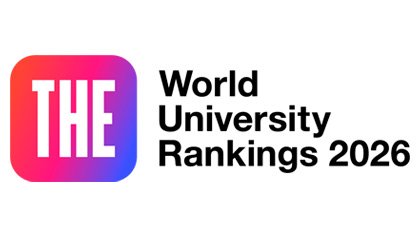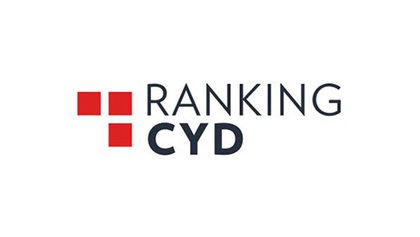-50% Discount on place reservation for 26/27 intake until February 28th!
Global Degree in International Relations
The Global Degree in International Relations is a programme that aims to prepare professionals in diplomacy, geopolitics and international conflict resolution, capable of working in large organisations and institutions around the world. The four-year degree in international relations is composed of 240 ECTS credits. Students will develop skills such as communication, teamwork and leadership, all through an academic model based on experiential learning.
As an expert in International Relations you will be able to explain the complexity of global politics and interests. You will provide ways and tools for conflict resolution through diplomacy, cooperation, communication and political and legal advocacy. At the Universidad Europea we are pioneers in the teaching of the Bachelor's Degree in International Relations.
You can study this degree in Spanish
Official degree issued by Universidad Europea de Madrid
| Campus-based | Classes in English | Villaviciosa de Odón | 4 years, 240 ECTS | Start: 14 sep. 2026 | Faculty of Economics, Business and Communication Sciences |

Mobility offers
We have agreements with many universities in different continents so that you can choose the one that best suits your training.
Study Plan
Discover our experiential learning method, where individual and collective work are necessary tools for successfully overcoming the real challenges posed to you every day. In addition, you will participate in the face-to-face programme (F2F). Taught by active professionals, this programme allows you to take a closer look at the world of International Relations. During the last year of your studies, you will complete a mandatory internship in public and private institutions such as the Ministry of Foreign Affairs, the European Union, esglobal, Acción Contra el Hambre, the Helsinki Foundation and World Vision. During this internship, you will put into practice everything you have learned throughout your studies and strengthen skills such as teamwork, leadership and adaptability.
Study plan structure
Study plan offered in the current course
Click here to view the Former Curriculum – 2009 (discontinued)
Programa de estudios
1st Year (2025 curriculum)
| Materia | ECTS | Tipo | Idioma de impartición |
|---|---|---|---|
| History of international relations | 6 | BASIC | English (en) |
| Human and economic geography | 6 | BASIC | English (en) |
| Documentary sources | 6 | COMPULSORY | English (en) |
| Sociological Research Techniques Applied to IR | 6 | BASIC | English (en) |
| Foreign Policy and Diplomacy | 6 | COMPULSORY | English (en) |
| International Relations Theory | 6 | BASIC | English (en) |
| Concept of International Relations. Actors and Factors | 6 | BASIC | English (en) |
| Current Affairs Observatory | 6 | COMPULSORY | English (en) |
| Public International Law | 6 | BASIC | English (en) |
| Communication for International Relations | 6 | COMPULSORY | English (en) |
2nd Year (2025 curriculum)
| Materia | ECTS | Tipo | Idioma de impartición |
|---|---|---|---|
| State Theory and Comparative Political Systems | 6 | BASIC | English (en) |
| Comparative Legal Systems | 6 | COMPULSORY | English (en) |
| Cultural diversity in a globalised world | 6 | BASIC | English (en) |
| Human Rights and Development Cooperation | 6 | COMPULSORY | English (en) |
| Conflict theory and analysis | 6 | BASIC | English (en) |
| Foreign policy of Spain | 6 | COMPULSORY | English (en) |
| Multinational company management | 6 | COMPULSORY | English (en) |
| United Nations System | 6 | COMPULSORY | English (en) |
| Global economy and international trade | 6 | BASIC | English (en) |
| Language 1 (German) | 6 | COMPULSORY | German (de) |
| Language 1 (English) | 6 | COMPULSORY | English (en) |
| Language 1 (Spanish) | 6 | COMPULSORY | Spanish (es) |
| Language 1 (French) | 6 | COMPULSORY | French (fr) |
3rd Year (2025 curriculum)
| Materia | ECTS | Tipo | Idioma de impartición |
|---|---|---|---|
| Language 2 (German) | 6 | COMPULSORY | German (de) |
| Language 2 (English) | 6 | COMPULSORY | English (en) |
| Language 2 (Spanish) | 6 | COMPULSORY | Spanish (es) |
| Language 2 (French) | 6 | COMPULSORY | French (fr) |
| Security and defence alliances | 6 | COMPULSORY | English (en) |
| International economic and financial organisations | 6 | COMPULSORY | English (en) |
| International Conflicts of Laws | 6 | COMPULSORY | English (en) |
| External image | 6 | COMPULSORY | English (en) |
| Diplomatic and Consular Law | 6 | COMPULSORY | English (en) |
| Pressure Groups | 6 | COMPULSORY | English (en) |
| International Public Opinion | 6 | COMPULSORY | English (en) |
| Foreign Policy of the United States of America | 6 | ELECTIVE | English (en) |
| Powers and Emerging Markets | 6 | ELECTIVE | English (en) |
| Global Geopolitics | 6 | ELECTIVE | English (en) |
| Individual and Leadership | 6 | ELECTIVE | English (en) |
4th Year (2025 curriculum)
| Materia | ECTS | Tipo | Idioma de impartición |
|---|---|---|---|
| Environmental risks and climate change | 6 | COMPULSORY | English (en) |
| Professional Ethics in International Relations | 6 | COMPULSORY | English (en) |
| Design and Management of International Projects | 6 | COMPULSORY | English (en) |
| International negotiation workshop | 6 | COMPULSORY | English (en) |
| International Terrorism and Organised Crime | 6 | COMPULSORY | English (en) |
| External academic internships | 6 | INTERNSHIP | English (en) |
| Final Degree Project | 6 | TFG | English (en) |
| Russian Foreign Policy | 6 | ELECTIVE | English (en) |
| Defence structures of states | 6 | ELECTIVE | English (en) |
| Intelligence services and globalisation | 6 | ELECTIVE | English (en) |
| University activities | 6 | ELECTIVE | English (en) |
Programa de estudios
1st Year – 2009 Curriculum – to be discontinued in 2026–27
| Materia | ECTS | Tipo | Idioma de impartición |
|---|---|---|---|
| History and Theory of International Relations | 6 | BASIC | English (en) |
| Concepts of International Relations: Actors and Factors | 6 | COMPULSORY | English (en) |
| Communication in International Relations | 6 | COMPULSORY | English (en) |
| Human, Economic, and Political Geography | 6 | BASIC | English (en) |
| Foreign Language Level I Spanish | 6 | BASIC | Spanish (es) |
| Foreign Language Level I French | 6 | BASIC | French (fr) |
| Foreign Language Level I German | 6 | BASIC | German (de) |
| Documentary Sources | 6 | BASIC | English (en) |
| Foreign Policy and Diplomacy | 6 | COMPULSORY | English (en) |
| Human Rights and Development Cooperation | 6 | COMPULSORY | English (en) |
| Sociological Research Techniques | 6 | BASIC | English (en) |
| Current-Day Observations | 6 | COMPULSORY | English (en) |
2nd Year – 2009 Curriculum – to be discontinued in 2027–28
| Materia | ECTS | Tipo | Idioma de impartición |
|---|---|---|---|
| Theory of State and Comparative Political Systems | 6 | COMPULSORY | English (en) |
| Comparative Legal Systems | 6 | BASIC | English (en) |
| Global Economy and Foreign Trade | 6 | BASIC | English (en) |
| Cultural Differences and Interculturality | 6 | COMPULSORY | English (en) |
| English | 6 | BASIC | English (en) |
| Spain’s Foreign Policy | 6 | COMPULSORY | English (en) |
| Public International Law | 6 | BASIC | English (en) |
| The United Nations | 6 | COMPULSORY | English (en) |
| Theory and Analysis of International Conflicts | 6 | COMPULSORY | English (en) |
| Management of Multinational Companies | 6 | BASIC | English (en) |
3rd Year – 2009 Curriculum – to be discontinued in 2028–29
| Materia | ECTS | Tipo | Idioma de impartición |
|---|---|---|---|
| Defense and Security Alliances | 6 | COMPULSORY | English (en) |
| International Economic and Financial Organisations | 6 | COMPULSORY | English (en) |
| International Public Opinion | 6 | COMPULSORY | English (en) |
| Image Abroad and Public Diplomacy | 6 | COMPULSORY | English (en) |
| Foreign Language Level II Spanish | 6 | BASIC | Spanish (es) |
| Foreign Language Level II French | 6 | BASIC | French (fr) |
| Foreign Language Level II German | 6 | BASIC | German (de) |
| Diplomatic and Consular Law | 6 | COMPULSORY | English (en) |
| Pressure Groups | 6 | COMPULSORY | English (en) |
| International Conflicts of Laws | 6 | COMPULSORY | English (en) |
| Foreign Policy of the United States of America | 6 | ELECTIVE | English (en) |
| Emerging Powers & Markets | 6 | ELECTIVE | English (en) |
| Global Geopolitics | 6 | ELECTIVE | English (en) |
| The Individual and Leadership | 6 | ELECTIVE | English (en) |
4th Year – 2009 Curriculum – to be discontinued in 2029–30
| Materia | ECTS | Tipo | Idioma de impartición |
|---|---|---|---|
| Internship | 9 | INTERNSHIP | English (en) |
| International Terrorism and Organised Crime | 6 | COMPULSORY | English (en) |
| Professional Ethics in International Relations | 6 | COMPULSORY | English (en) |
| Seminar of International Negotiations | 6 | COMPULSORY | English (en) |
| Environmental Hazards and Climate Change | 6 | COMPULSORY | English (en) |
| Graduation Project | 6 | TFG | English (en) |
| Design and Management of International Projects | 3 | COMPULSORY | English (en) |
| State Defense Structures | 6 | ELECTIVE | English (en) |
| Intelligence Services and Globalization | 6 | ELECTIVE | English (en) |
| Russian Foreign Policy | 6 | ELECTIVE | English (en) |
| University Activities | 6 | ELECTIVE | English (en) |
Programme implementation
2009/2010
Places for incoming students
144
Internships
Internships are a key component of your training. Acquiring experience after what you have learnt in your degree is the best way to enter the employment market. There are two types of internships: curricular—which are included in your study plan—and extracurricular—which you can do on a voluntary basis.
In order to complete curricular internships in companies, you will need to have 50% of the credits approved and to register the subject before starting your internship. These internships are monitored by the company and the internship coordinator, and they are evaluated by midterm and final reports.
If you want to take your work experience to the next level before finishing your university education, you can pursue an extracurricular internship. You can do them in any academic year, but keep in mind that internships are a formative complement to your studies; therefore, the more knowledge you have acquired throughout your studies, the more you will benefit from the internship experience.
Employability
Career oportunities
Being an international relations expert helps you develop sought-after skills that can be applied to any field, from research and administration to critical analysis, scientific method and intercultural awareness.
Management roles in intenational public and private companies
- International organisations
- Public and private companies
International confilt mediator
.
International consultancy
- International consulting and advice
Public service
- Diplomatic corps
- International organisations
- Supranational organisations
- Defence
- Intelligence services
Foreign affairs
- Diplomatic missions, consulates or customs agencies
- Diplomatic corps public exam for civil service in Spain
- International cooperation programmes
- Global organisations like the UN, regional organisations like the EU, or sectoral like NATO
Private company
- Expert in international trade
- Non-governmental organisations (NGO), in cultural, educational or humanitarian cooperation programs; political, economic, tourism or environmental consultancies
- Chambers of commerce
- International business
- International consultancy analyst
- Media: advice on cultural, political, historical, ethical and economic matters
Research
- Research institutes
- Lobbies
- Think tanks
Teaching
- Public sector
- Private sector
Admissions
Start your future at Universidad Europea
You can become a student at Universidad Europea in three easy steps.
1
Admission exams
Start your admission process by calling +34 918257503 or request information and our advisors will contact you.
2
Place reservation
Once you have been admitted, secure your place by paying the reservation fee.
3
Enrollment
Submit the required documents to formalise your enrollment.
Scholarships and financial aid
We want to help you. If you want to study at Universidad Europea, you will have at your disposal a wide selection of own and official scholarships.
Credit recognition and transfers
You don’t have to stick with something you don’t like. That’s why we’ve designed specific plans for credit recognition and transfers.
Request your online credit recognition review, transfer your academic file and start studying at Universidad Europea.
Entrance requirements
This program is taught entirely in English by an international faculty. Almost half of the students who take this course are from outside Spain. If you decide to, you can study a second language during the degree. You can study abroad in the third or fourth year of your studies and, in the fourth year, you will take part in an obligatory exchange at a top international university including: London School of Economics, Pace University in New York or McGill University (Canada).
Profile for students and admissions requirements
Students enrolling the Global Bachelor in English should acreditate a level B1 of language in the Common European Framework of Reference for Languages of the European Higher Education Area.
Open days
Join us at one of our Open Days and see for yourself how our advanced educational methodology works, meet the faculty members who are already thinking of your future, get more information on the programs we offer, and find out how to begin your studies with us in the next academic year.
21 March

Come and see the campus
Get to know the facilities and discover why Universidad Europea is made for you.
Faculty
63% of our professors are doctors of great prestige in the educational field.
Our teaching staff
- Marta Abanades Sánchez
Professor with over 20 years of professional experience in the university environment, currently associate professor in the Dept. of Legal and Political Sciences teaching subjects: Oral and Written Communication Skills, Competencies: Personal and Professional Effectiveness, Management Skills, People Management, Human Resources Management, TFG and TFM, among others. In the International Relations Degree she teaches Individual and Leadership.
IP responsible for two research projects:
-The challenges of teachers facing digital teaching: the mastery of technologies versus socio-communicative competences.
-New strategies of engagement in students on digital competence: innovation of resources and methodologies within the subjects in the higher education scenario.
She has held various management positions at the UEM (Coordinator in the area of Education, Head of internships in the Bachelor's Degrees in Early Childhood and Primary Education, Coordinator of the Careers Department at IEDE Business School, Internal Director of the Master's Degree in International Finance, Academic Coordinator of postgraduate courses at the UEM Business School and Director of the Master's Degree in Business Analytics,
Coordinator of authorship in the Degree in Primary Education and the corresponding mentions as well as content development in several subjects. She collaborates as a reviewer in several high impact journals and has been and is thematic responsible for four consecutive years in CIMIE in thematic areas such as Childhood and Primary Education and Excellence in Research. - María Begoña Aláez Esteban
He teaches State Theory and Political Systems; Diplomatic and Consular Law. - José Carlos Aránguez Aránguez
PhD in Contemporary History from the Complutense University of Madrid (UCM); Master's Degree in Compulsory Secondary Education Teaching (Universidad Pontificia Comillas de Madrid); Master's Degree in Contemporary History (UCM); and Bachelor's Degree in History (UCM). Accredited by ANECA as Profesor Contratado Doctor / Professor of Private University, since 2022 he is the coordinator of the Degree in International Relations (UEM).
He is the author of 13 book chapters and academic articles on foreign policy and history of international relations, especially in the field of (post)colonial studies. He is a member of the Research Group on the History of International Relations (GHistRI) (UCM) and the Public Policy, International Security and Global Governance Research Group (UEM). In 2017 he completed a research stay at L'École des Hautes Études en Sciences Sociales (EHESS) in Paris.
At the UEM he is tutor of TFG and teaches the subjects: Concept of International Relations: actors and factors; Foreign Policy of Spain; Foreign Policy of the United States of America; International Public Opinion. - Adán Arsuaga Méndez
He holds a degree in Philosophy from the UPV/EHU and is a PhD student in Socio-Educational Innovation at the European University. He is currently an adjunct professor at the European University of several subjects in the degrees of International Relations and Communication. Tutor/coordinator of internships in the degrees of International Relations, International Business and ADE. He is also a member of the research groups of the European University; Education and Critical Thinking: the Challenge of Integrating them in the Training of Students and the Group of Knowledge-Research in Social Problems. Founding member of the Scientific Association for the Promotion of Critical Thinking Skills and of the Board of Directors of Criticæ: Scientific Journal for the Promotion of Critical Thinking Skills. - Ayat Bakri
Master in Finance, teaches Global Economics and Foreign Trade in the International Relations degree. - María Susana Bokobo Moiche
He teaches International Conflicts of Laws. - Isa Bimi
He teaches Public International Law; European Union Law; International Organizations. - Gabriela Brochner
Professor of International Relations at the European University of Madrid, co-director of the Master's Degree in Terrorism, Security and Defense. Degree in Social Sciences from the Pontifical Catholic University of Rio Grande do Sul, Brazil. Master in Contemporary Latin American Studies and PhD in Political Science and Administration and International Relations from the Complutense University of Madrid, specializing in gender studies, geopolitics and Latin American studies.
She currently conducts research in the area of critical geopolitics, gender and international security in the area of international conflict. In the International Relations degree she teaches Theory and Analysis of International Conflicts; Security and Defense Alliances; Global Geopolitics. - Rafael Calduch Torres
PhD in History of International Relations (UCM), is Vice-Dean of the Economics, Business and International Relations Area. He teaches Foreign Policy of the United States of America and Foreign Policy of the United States of America, and coordinates the University Activities of the degree. - Gloria Canales Vargas
Master in Economics from Florida International University, Miami, USA; Doctorate studies in Economics at Florida International University, Miami, USA. Master in Public Sector Economics from Pontificia Universidade Católica do Rio de Janeiro, Brazil. Extensive teaching experience in Economics and Business at universities in Peru, Brazil, USA, UK and Spain. Areas of specialization: International Trade, World Economy and Environmental Economics. In the professional field: consultancies to the private sector in market research. Senior Consultant in the Ministry of Economy and Finance of Peru in the Investment sector. She teaches the subject of Environmental Risks and Climate Change. - Charlotte Rachel Charton
She teaches Course Language I and Course Language II in her French elective. - Angélica María Castro Acosta
He teaches International Conflicts of Laws. - María Curcio
He teaches History and Theory of International Relations; Human, Economic and Political Geography. - Víctor de Gregorio Alcaide
Professor of Administrative Law, Public Procurement, Immigration Law, Commercial Law. He teaches the subject Environmental Risks and Climate Change in the International Relations degree program. - Luís Alfonso Escolano Giménez
PhD in History from the University of Alcalá, and a B.A. and M.A. in Contemporary History from the Complutense University of Madrid. His research revolves around international relations during the nineteenth and twentieth centuries between the two sides of the Atlantic, especially in the Caribbean and the Dominican Republic. He is the author of La rivalidad internacional por la República Dominicana y el complejo proceso de su anexión a España (1858-1865), and co-author of Efectos de la migración internacional en las comunidades de origen del suroeste de la República Dominicana. He has also published several chapters in collective monographs and numerous articles in specialized academic journals. He is a TFG tutor and currently teaches the following subjects: History and Theory of International Relations; Concept of International Relations: actors and factors; Global Geopolitics; Professional Ethics in International Relations; International Economic and Financial Organizations. In other courses he teaches Technological Risk Management; Ethics and Professional Effectiveness. - Lorena Esmorís Galán
PhD in Philosophy from the Complutense University of Madrid. Degree in Philosophy and Information Sciences, with a Diploma of Advanced Studies in Sociology and Political Science. Member of the research group Public Policy, International Security and Global Governance. She teaches the subjects of Cultural Differences and Interculturality; Current Events Observatory. - Laura Ferre Sanjuan
Professor of International Relations at the European University of Madrid and at the Camilo José Cela University, collaborator at the research institute Centre Delàs d'Estudis per la Pau. Her specialty is technological governance in terms of Human Rights from the perspective of peoples and social movements.
She has worked in public institutions, private sector and civil society organizations on technology diplomacy, governance, human rights and international cooperation in China, Belgium, Spain, Cyprus and the United States. He co-founded Ecumenikó, a training project on sustainability and Human Rights.
She studied a Master in Geopolitics and Strategic Studies at the Carlos III University of Madrid and a Master in Diplomacy and International Relations at the Diplomatic School of Spain. She is currently a PhD student in Human Rights, Democracy and International Justice at the University of Valencia. She teaches History and Theory of International Relations; Concept of International Relations: actors and factors; Human, Economic and Political Geography; Human Rights and Development Cooperation; Current Affairs Observatory. - Aída Fonseca Díaz
Internship Coordinator of the Double Degree in Law and International Relations. - Francisco Javier García Fernández
He teaches Human, Economic and Political Geography; Middle East and Maghreb; Sociological Research Techniques; Foreign Policy and Diplomacy. - Belén García-Delgado Giménez
PhD in Documentation from the University of Salamanca, she has a degree in Hispanic Philology (USAL) and a degree in Documentation (USAL). Master in Teaching Spanish as a Foreign Language (UIMP) and PhD with European mention (USAL). Accredited as Full Professor by ANECA and 2 sexenios of research.
She has 17 years of teaching experience in Higher Education teaching subjects in Spanish and English related to research and applied documentation. She has served as degree coordinator of the Journalism and Communication area and also as international coordinator of the Faculty of Communication. 3 years of professional experience in libraries and research centers. 3 years as a member of the research committee of the Doctoral and Research School of the European University.
Author of articles and monographs on reading habits, digital reading, critical thinking and teaching innovation. Visiting researcher at Universidade Nova de Lisboa (2011), University of Turku (2012), University of Conpenhaguen (2013), Universidade de Aveiro (2014), Universidade de Porto (2017) and Stockholm University (2023).
He teaches the subject of Documentary Sources. In other degrees, he also teaches Documentation and Data Journalism; Methodology of Social Research; Audience Analysis. - Javier González del Castillo
He is a professor and researcher at the Faculty of Physical Activity and Sport Sciences. He is a graduate in History and Postgraduate in Contemporary History (Universidad Autónoma de Madrid). He has several research awards: the “José Mª Jover” Award for trainee researchers in History of International Relations 2016; Finalist of the “Leopoldo Zea” Research Award 2019 (FIEALH Szeged, Hungary); and Honorable Mention Early Career Scholar Award 2021 (CESH-Lisbon). In addition, he has been nominated for Best Spanish University Teacher 2023/2024 in the EDUCA-ABANCA Awards. His lines of research are: Diplomacy and Sport, Olympic Games, Security and Terrorism. He is the author of more than 40 communications and papers presented at national and international conferences and of a good amount of research published in the form of book chapters and articles in specialized journals.
He teaches the History and Theory of International Relations. - Sara Grandío Tierno
Degree in Fine Arts from the Complutense University of Madrid, specializing in Visual Arts. She teaches language subjects in 3 languages (Spanish, English and Mandarin Chinese) within the UEM in classroom, online and hybrid modalities, as well as in internal training of its employees. Examiner of the Cervantes Institute, she teaches Spanish for specific purposes in the degrees of Dentistry, Physiotherapy and International Relations. She is currently studying for her PhD at the UEM.
She teaches the subject Language Course I in her Spanish elective. - Julio Guinea Bonillo
He holds a degree in History and a degree in Political Science from the Complutense University of Madrid, a Master in European Union from the CEU San Pablo University and in Diplomacy and International Relations from the Diplomatic School of Spain. He also holds a PhD in Law from UDIMA with a thesis on the Legal Articulation of the Common Foreign and Security Policy and the Common Security and Defense Policy. His research interests focus on European issues, modern and contemporary history and integration processes. Visiting researcher at the Universidad Central del Este, Dominican Republic (2019), Universidad Católica de Santiago de Guayaquil, Ecuador (2023), and Oxford University, UK (2026).
He teaches Diplomatic and Consular Law; European Union Law. In other degrees, he also teaches International Legal Cooperation; International Humanitarian Law; International Legal Mediation. - Beatriz Gutiérrez López
Professor of International Terrorism and Organized Crime. - Zaki Habib Gómez
PhD Candidate in Political Science, Administration and International Relations from the Complutense University of Madrid. Author of articles and monographs in the fields of political geography and human rights. He is the coordinator of the International Business Degree.
He teaches the subjects of The European Union in the World; The United Nations Organization. - Hutan Hejazi
PhD in social and cultural anthropology from Rice University. His research focuses on Islam in Europe and the Middle East. He is interested in hermeneutics and rhetoric in religious and political movements, conversions, millenarianism, economic anthropology, ethics as self-formation, theory in the social sciences and social theory.
He teaches Sociological Research Techniques; Professional Ethics in International Relations; Middle East and Maghreb. - Ivan Hilliard
Professor of Business Organization at the Universidad Europea de Madrid and accredited as Associate Professor by ANECA. He teaches in the degrees of International Business and International Relations.
His main areas of research include corporate social responsibility, social entrepreneurship, education and tourism. He has published more than 20 publications and book chapters, and is the author of the book Coherency Management, which focuses on the need for a holistic approach to CSR management. He has participated in several European research projects in the field of tourism, and is coordinator of the Spanish team in these projects. He is founder and CEO of the food and catering company Gourmad Food 2020 SL.
He teaches the subject of Management of Multinational Companies. - Concepción Jara Maroto
She has a degree in Law, a Master in Human Resources and a Master in Occupational Risk Prevention. She has experience as an official examiner for the Cervantes Institute, in language learning in simulated environments, active methodologies (cooperative learning and project-based learning) as well as in international cooperation and volunteer projects.
In the degree she teaches the subjects Language Course I and Language Course II in her Spanish elective. - Sebastián Linares Lejarraga
He teaches the subject Human Rights and Development Cooperation. - Alonso Muñoz Pérez
Professor of Comparative Legal Systems. - José María Peredo Pombo
Professor of Communication and International Politics, he is Vice-Dean of the Communication and Journalism Area. He teaches the subject Foreign Image and Public Diplomacy in the Degree in International Relations. - Yolanda Powley Díaz
Degree in Business Administration and Management from ICADE, specializing in Marketing. Postgraduate training in Design, University of the Arts London. Certificate in Teaching English as a Foreign Language. Business experience in Marketing and Design departments. Training and teaching experience in digital environments. Private university lecturer, both face-to-face and online teaching, since 2017. She teaches the subject of English. - Graciela Rico Pérez
TFG Coordinator, she teaches the subject Design and Management of International Projects. - Guillermo Miguel Rocafort Pérez
Degree in Law, Degree in Economics and Business Administration, Diploma in Advanced Studies in Commercial Law and PhD in Economics “Sobresaliente Cum Laudem” with a doctoral thesis on SICAVs in Spain.
Professor at the Spanish Universities Carlos III de Madrid, Autónoma de Madrid, ICADE, UEM and the Financial University of Moscow (Russian Federation) in their International Economic Forums.
He has written numerous articles and scientific publications in Spanish and international journals that are referenced in the Library of Congress of the USA and the National Libraries of Spain, France, Germany and Portugal.
He received the International Journalism Award from the Club de Periodistas de México in 2022 for a study on Tax Havens and Hedge Funds.
He teaches International Economic and Financial Organizations; The European Union in the World. - Ricardo Rodríguez Arribas
He teaches the subjects of Public International Law; Current Events Observatory. - Ruth Carmen Rodríguez García
PhD in Communication. Degree in Journalism. Currently, she coordinates the Journalism area. She teaches in the degrees of Journalism, Marketing, Audiovisual Communication and RRII and the double degrees of Journalism + Audiovisual Communication, Journalism + RRII and Advertising and Audiovisual Communication since 2003.
With experience in faculty management, academic coordination and student coordination. Her doctoral thesis revolves around the evolution of social networks in the university environment. She has several publications in books in the area of communication.
In the degree she teaches the subjects of Communication for International Relations. - Almudena Rodríguez Tarodo
PhD in Communication from Universidad Complutense and postgraduate training at Stanford. She has 27 years of experience in executive and global positions in HR, Marketing and Communication (Banco Santander, Indra, Amadeus, Dircom...). Author of articles and monographs of reference in the fields of Internal Communication and Employer Branding.
She teaches the International Negotiation Workshop. - Ignacio Julio Sáez González
He teaches the subject Individual and Leadership. - Ursula Scheiber
PhD in Political Science from the University of Innsbruck/Austria, BA in Political Science. Member of the research group “Public Policy, International Security and Global Governance” at the EMU. She has worked in the field of international development cooperation in Bolivia, El Salvador, Kenya, Tanzania and Uganda.
This year she teaches the subjects of Cultural Differences and Interculturality; History and Theory of International Relations. In other degrees he also teaches Geopolitics. - Juan Pablo Serra
PhD in Philosophy from the University of Navarra with a thesis on the centrality of human experience in knowledge and ethics according to classical pragmatism. Author of articles on the history of political ideas, conservative political thought and popular culture. Erasmus visiting professor at the Universitá Europea di Roma (2010) and at the University of Essex (2012).
He teaches Foreign Image and Public Diplomacy; International Negotiation Workshop. - José María Sevilla Llewellyn-Jones
PhD in Economics from CEU San Pablo University, Master in Marketing from the University of Saint Andrews and Bachelor in Business Administration from the Universidad Autónoma de Madrid. Throughout his professional career he has worked internationally in Investment Banking, Strategic Consulting and for the Government of Chile. He has co-founded and is an investor in several companies.
He teaches the subjects of Powers and Emerging Markets; Global Economy and Foreign Trade. - David Temprano de Miguel
PhD Candidate in Sociology (UNED). Member of the Research Group on Social Issues (UEM). Currently his research is directed towards the field of citizen participation and the creation of identities. He is a professor of State Theory and Political Systems. - Almudena Vázquez Solana
PhD Candidate in Theoretical and Applied Linguistics. Degree in German Philology and in Translation and Interpreting from the Complutense University of Madrid. Sworn German-Spanish translator, specialized in the field of administrative and legal translation. Author of several book chapters on translation quality, contrastive analysis between the German and Spanish languages and teaching innovation related to language teaching. These three areas constitute her main lines of research.
She teaches Course Language I and Course Language II in her German elective, as well as Spanish for specific purposes in different degrees.
Excellence endorsed by the best
Frequently Asked Questions
Is international relations a good career?
A career in international relations is varied, exciting, and constantly changing. With a Degree in International Relations, such as the one on offer at Universidad Europea you can work in various sectors on the global stage.
International relations could be for you if you:
- Have a desire to change the world in some way
- Enjoy networking and building connections with people from other countries and cultures
- Value diversity
- Want to have a career in politics, NGOs or global businesses.
- Enjoy data and statistics
- Have good interpersonal and communication skills
What job can I get if I study international relations?
A degree in international relations will open doors to numerous career opportunities. Graduates of our programme have enjoyed roles across the world in a variety of sectors. Some examples are:
- Management roles in public or private organisations
- Diplomatic corps
- Intelligence services
- International consultancy
- Chamber of Commerce
- Expert in international trade
- Research and teaching
Should I study international relations?
Studying international relations will ensure you develop key skills such as leadership, teamwork, management – all of which are in demand and can be used in whatever sector you go into after graduation.
Should you choose to study international relations at Universidad Europea, you’ll will be exposed to a truly global experience – with opportunities for international exchanges in the USA, Europe and Asia. In addition, as we place huge importance on experiential learning, you’ll be working on real case studies from day one, as well as carrying out internship periods.
You’ll learn from the very best in the field too – our faculty is made up of leading international relations experts from around the world, all willing to share their experiences and knowledge to ensure you succeed in solving the different global challenges we face today and tomorrow.
What do you study in international relations?
The study plan on the Degree in International Relations at Universidad Europea is designed to develop a broad set of skills and knowledge so that you can choose whatever career you wish to go into after graduation.
Some of the subjects you will study include:
- Concepts of International Relations: Actors and Factors
- Human, Economic, and Political Geography
- Foreign Policy and Diplomacy
- Theory of State and Comparative Political Systems
- Global Economy and Foreign Trade
- Theory and Analysis of International Conflicts
- International Economic and Financial Organisations





